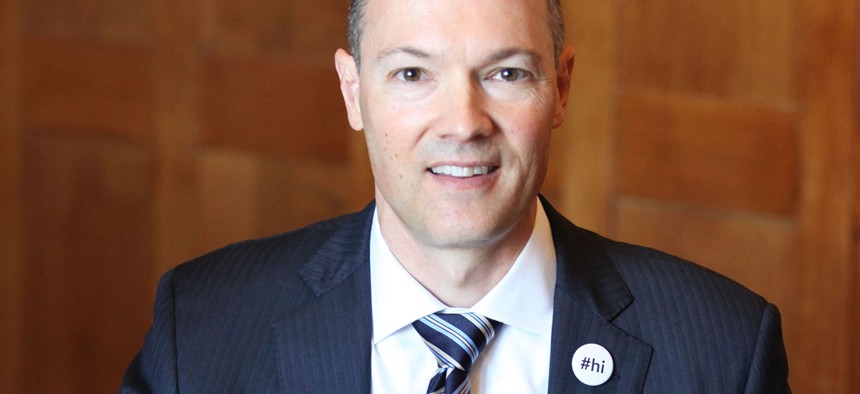What the Federal Acquisition Service Commissioner is Focused On So Far

Alan Thomas described his first two months as a listening tour to gather customer feedback from GSA regions.
The new commissioner of the Federal Acquisition Service—the General Services Administration wing responsible for $55 billion annually in federal procurement—wants to modernize internal IT systems and put more emphasis on better serving its customers.
In an interview Monday with Nextgov, Alan Thomas, who was appointed FAS commissioner amid a June reorganization, said the underlying systems 3,400 FAS employees use daily are old and outdated.
“There’s a tech refresh that could be done with the systems used to run our business,” Thomas said. “That’s one area of focus. We’re trying to bring thoughtful order and discipline and look at what we’re doing now in our portfolio of systems and rationalize that.”
» Get the best federal technology news and ideas delivered right to your inbox. Sign up here.
Legacy technology remains commonplace in government, with agencies spending 75 percent of their tech budgets on old systems and some critical systems approaching five decades in age.
GSA’s systems are nowhere near that old, but “those systems have an impact on how we serve customers, enable suppliers to access the government marketplace and the data we produce to run the business.”
Thomas is keyed in on “streamlining and simplifying” business processes. In one example, FAS recently funded a pilot program that explores the use of automated bots that could tackle a substantial chunk of the repetitive tasks contracting officers engage in, Thomas said. Such an innovation could “free contracting officers up to do more strategic things,” such as negotiating with vendors or analyzing data.
“It also makes for a better work environment,” Thomas said. “Would you rather visualize some data and find things you didn’t know about or do a repetitive task 100 times per day?”
He also sees more opportunity for FAS in shared services, an area dozens of agencies are moving toward.
18F ‘On Pace’ to Achieve Financial Stability
18F, the tech fix-it team that came under budget scrutiny last year, appears to be on steadier financial footing than this time last year.
Last June, a GAO audit revealed 18F faced a project fiscal 2016 budget shortfall of nearly $15 million. The budgeting woes of 18F and the Technology Transformation Service were called out internally by former FAS Commissioner Thomas Sharpe, who left GSA in June—one month before GSA’s Office of Special Counsel backed Sharpe as a whistleblower.
18F’s "position is solid and steadily improving,” Thomas said. He wasn’t sure of exact spending and cost recovery figures this year but said, “it will be cost-recoverable.”
Forging Partnerships
Thomas described his first two months as a sort of “listening tour,” visiting four GSA regions and gathering feedback he’ll use to put forth policy. He’s also intent on forging partnerships with new and old stakeholders and customers. Thomas said he met with members of the White House Office of American Innovation, the Jared Kushner-led team charged with making government run more efficiently. TTS, now a part of FAS, has personnel assisting the White House’ centers of excellence effort, Thomas said.
“In terms of stakeholders and agencies, I love doing that,” Thomas said. “We’re always got to be out talking to customers about what we do.”
Thomas also praised GSA’s Emerging Citizen Technology program as “playing a valuable role” in identifying emerging technologies and their potential to impact government.
“Those spaces are so fluid right now, it’s fast-moving, with new companies entering and exiting the space and new ideas popping up every week,” Thomas said. “Having somebody like that office out there understanding what’s going on, and bringing it back and sharing is good.”






